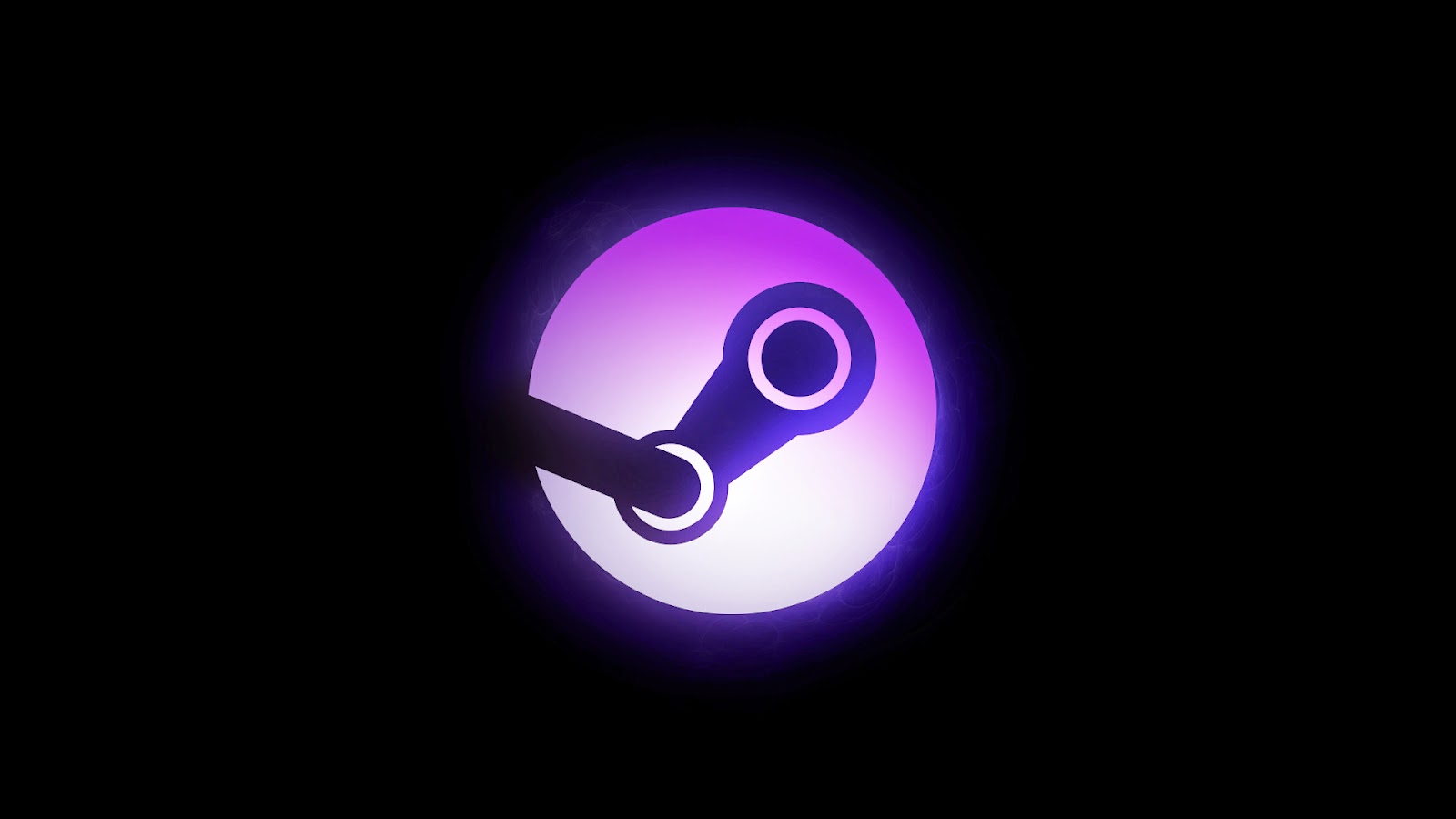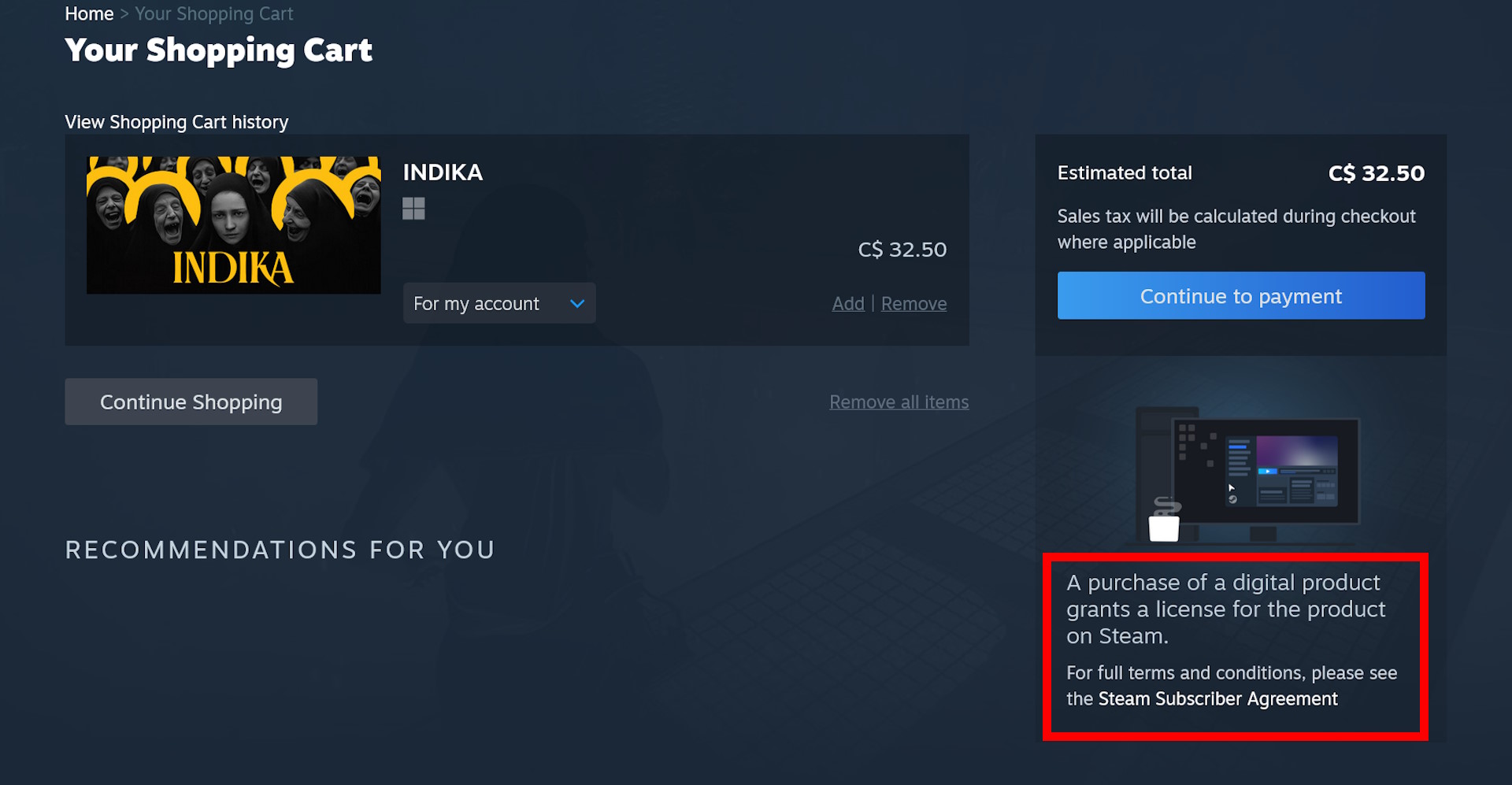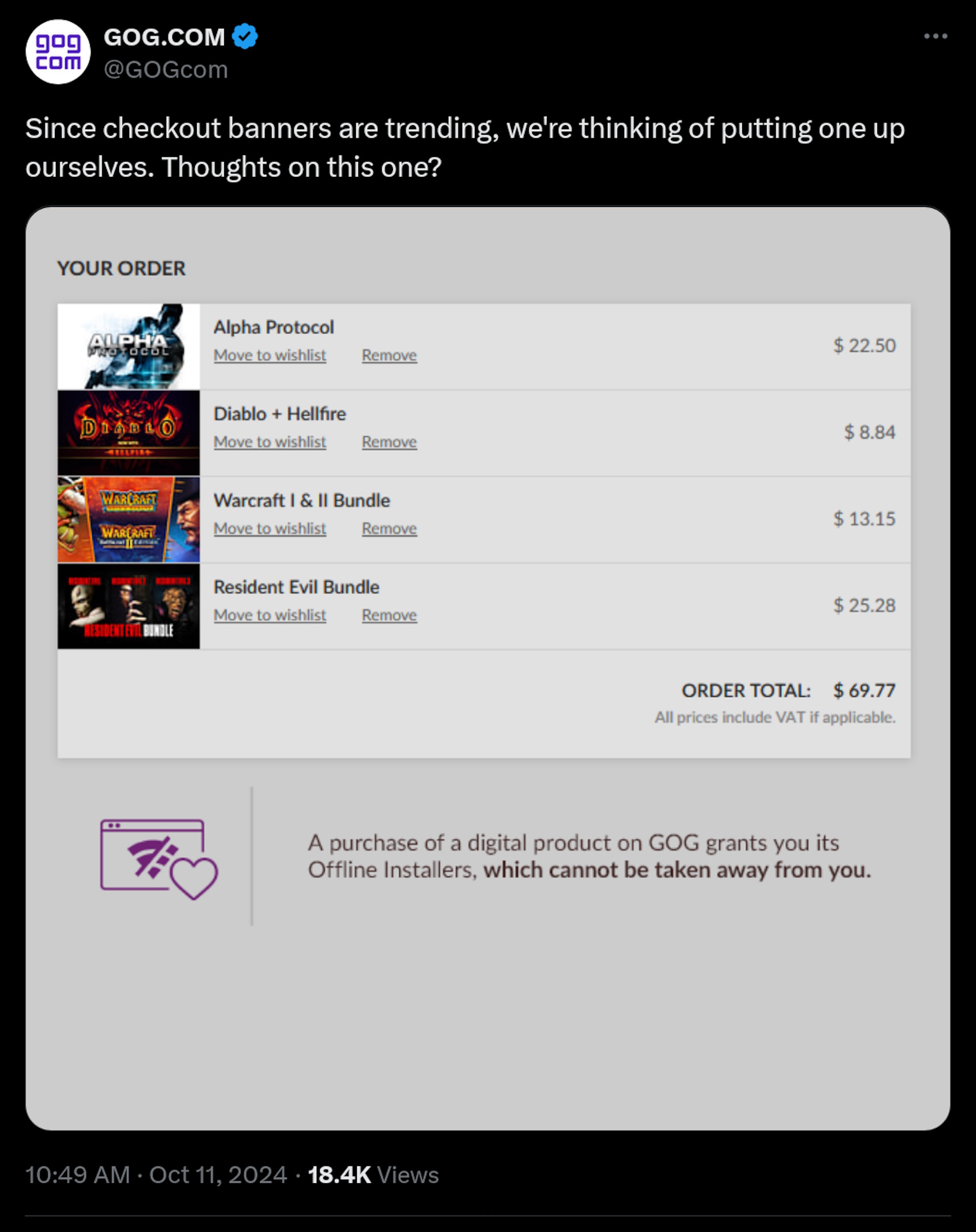
Steam has apparently made a little change to its shopping cart page in the form of a new message that very clearly lays out to one and all that you're not buying a game—you're buying a license.
I say the message is "apparently" new because I can't swear it hasn't been there for days, weeks, or maybe even months already. But it's definitely there now, and was only noticed by the internet at large within the past 24 hours. Given the absence of scathing "you fool, you absolute buffoon" messages on Reddit, though, I strongly suspect it is indeed new.
The message itself is very brief: "A purchase of a digital product grants a license for the product on Steam." A link to the full Steam Subscriber Agreement is also provided. The change follows on the heels of Valve modifying its subscriber agreement last month to remove a forced arbitration clause.

I added the red so you wouldn't miss it.
While the message may be new, the reality behind it is not. For practical purposes, all you need to do is forget your Steam password to get a real (if hopefully temporary) sense of just how much you "own" your games; if you really want to take the plunge, you could engage in some public, gross violation of Steam rules (repeatedly, if necessary) to have your account, and all "your" games taken away entirely. You can't bequeath your Steam library to anyone upon your unfortunate passing either, which of course you would be able to if you really owned its contents.
Conversations about whether or not anyone actually "owns" their games or other digital content have been going on for years: This Hacker News forum thread from 2012, for instance, warns users to read the Steam subscriber agreement carefully because software purchased through the storefront is licensed, not owned.
"As nice as Steam is to use, being able to download software on any computer in a fairly simplistic manner and to get reduced prices from time to time, I'm not convinced that giving up the right to own things you purchase is a fair price for that convenience," just2n wrote in a message that feels like it came from about 100 years ago.
So if the absence of ownership on Steam isn't new, why the new message? My assumption is that it arises from recent pushback against game publishers ending support for online games, rendering them inoperable, and in some cases revoking the licenses to those games outright. That too is nothing particularly new, but Ubisoft broke the camel's back earlier this year when it ended services for The Crew and stripped the license from people who had purchased it. That sparked a "Stop Killing Games" consumer campaign and, more pointedly, a new California law that requires retailers to warn consumers that the digital games they buy can be taken away at any time—as this message does.
The law only applies in California but other states and countries could (and, I would guess, will) embrace similar laws of their own. Given that, and the hassles of complying with regulations on a granular, state-by-state basis, it makes sense that Valve would take the simplest approach here: Blast this message to everyone, every time, and be done with it. It won't do anything to keep your games from being taken away from you, but as I noted when the California law was signed into being, it does provide a layer of legal cover for the companies taking them. And given the great convenience of Steam, isn't that all that really matters?
Never missing an opportunity to weigh in on such matters, GOG took a moment to mull a checkout message of its own.








